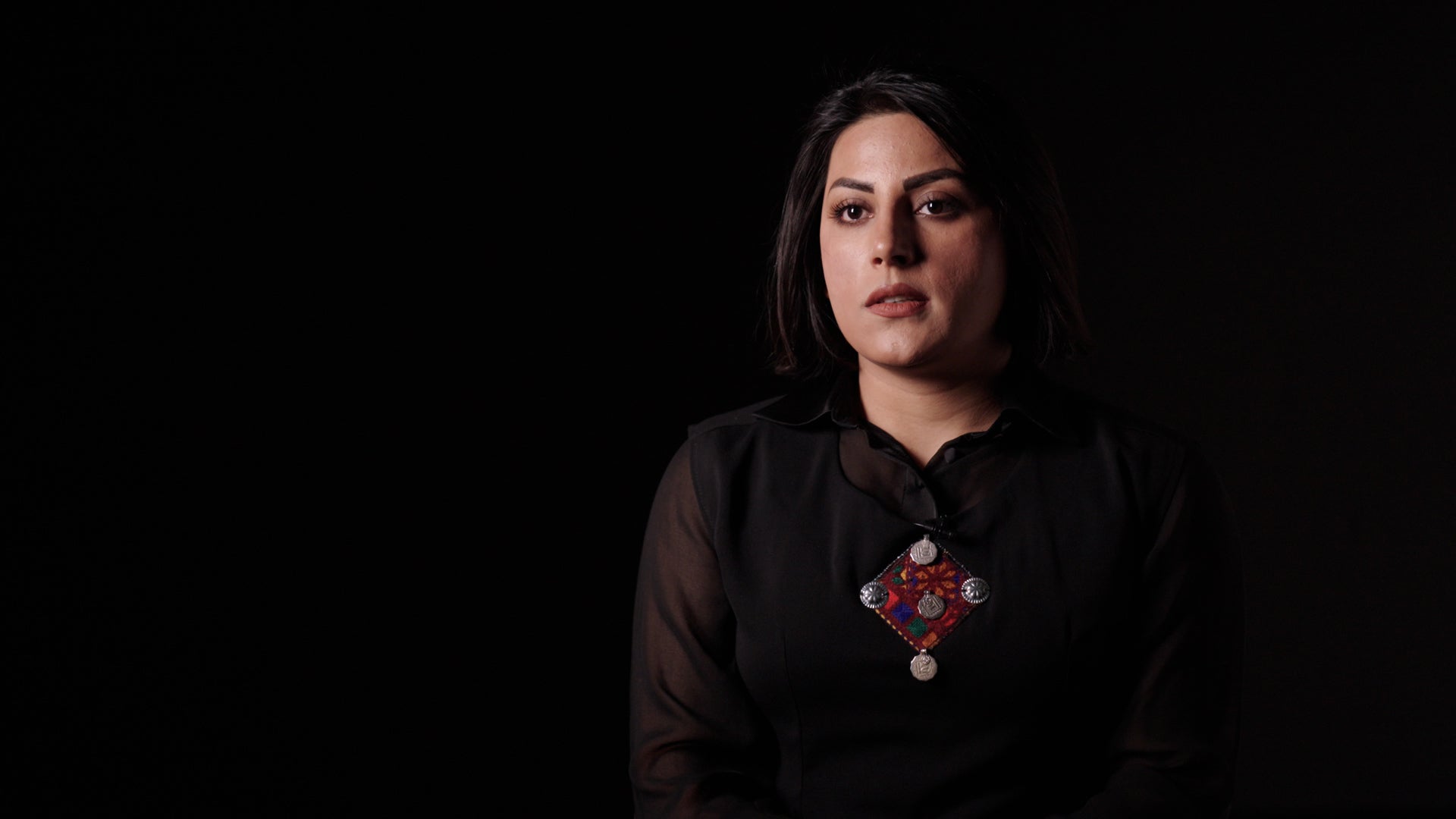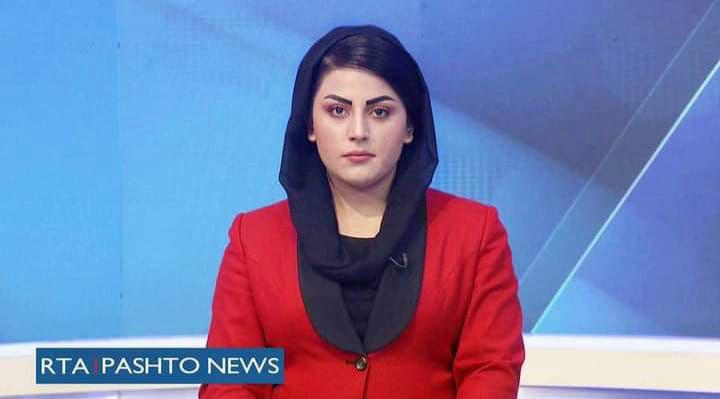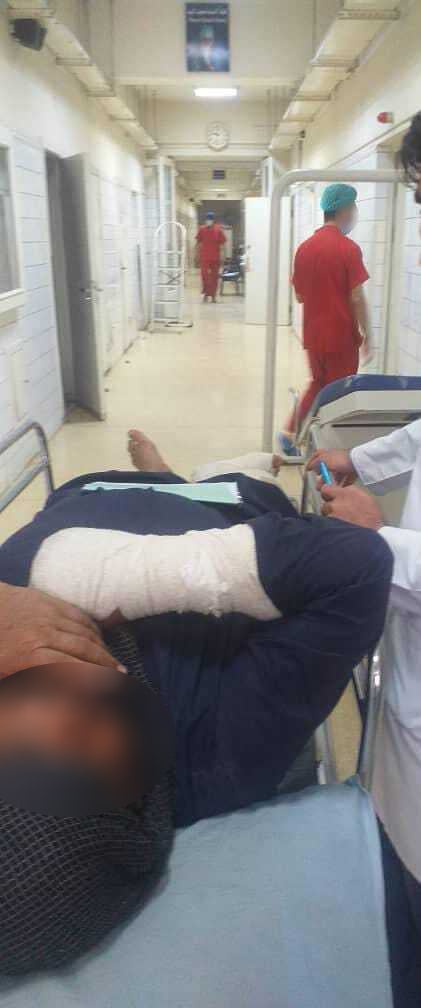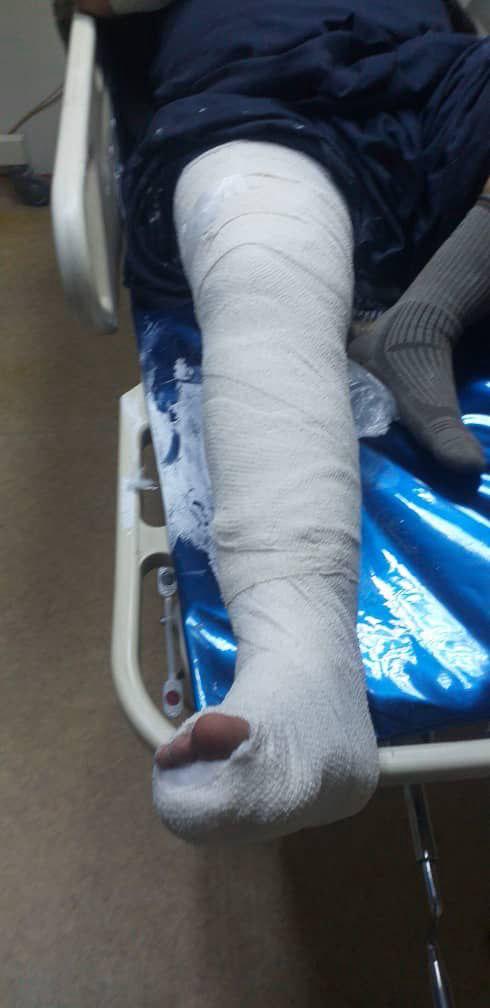She stood up to the Taliban as a leading TV presenter. Now they’ve come for her family
After an online clip of her challenging the Taliban went viral, Shabnam and two siblings fled to the UK. She tells Holly Bancroft how her older sister and parents were left behind
Your support helps us to tell the story
From reproductive rights to climate change to Big Tech, The Independent is on the ground when the story is developing. Whether it's investigating the financials of Elon Musk's pro-Trump PAC or producing our latest documentary, 'The A Word', which shines a light on the American women fighting for reproductive rights, we know how important it is to parse out the facts from the messaging.
At such a critical moment in US history, we need reporters on the ground. Your donation allows us to keep sending journalists to speak to both sides of the story.
The Independent is trusted by Americans across the entire political spectrum. And unlike many other quality news outlets, we choose not to lock Americans out of our reporting and analysis with paywalls. We believe quality journalism should be available to everyone, paid for by those who can afford it.
Your support makes all the difference.As a leading TV presenter championing women’s rights, Shabnam Khan Dawran is no stranger to death threats.
The latest one – received on Twitter/X just an hour before our interview – says if she doesn’t stop speaking out against the Taliban on her London-based show “you know what will happen to your family”.
The threats are not abstract. Her father has already been arrested three times in Afghanistan.
On one occasion he was beaten and left for dead – his head bleeding, arm and leg broken as a message to Shabnam. More recently, the Taliban tracked her family to the country where they have been forced into hiding.
Having fled Afghanistan in 2021 after an online clip of her challenging the Taliban went viral, she recently received messages with the address and photo of her family’s new safe house. The implication was clear: stop challenging us or we will kill your parents.
The pressure on the 26-year-old journalist would be too much if it was not for her father’s resilience in the face of persecution, she says. Wearing a traditional Afghan embroidered black blouse, she speaks clearly in the English she has been rapidly improving during her three years living here.
As she searches for the words to express herself, the impact of the constant danger that her family is facing is clear from her tone of voice: “He told me I cannot stop.”
Recalling her father’s words to her after his brutal attack, she said: “Now I am older I can sacrifice myself for Afghanistan, for human rights for women and girls, but don’t stop just for me. If you are my friend, my daughter, a member of my family, promise me you have to carry on.”

“I made that promise,” she said. Tears come to her eyes as she describes the cost of doing so: “Now my father cannot stand by his own feet. He has to hold something to help him up. He used to be in good health but now his leg is broken, his arm broken. He is an unwell man, just for supporting his daughter.”
“Journalism is not a crime. Being an anchor is not a crime,” she said, adding that her first wish is to be able to hug her mother and father again.
While Shabnam and her two younger siblings were airlifted to safety in the UK as part of the Western forces evacuation of Afghanistan in August 2021, her older sister and parents were left behind.
Her father, an army pilot for the previous Afghan government, applied to come to Britain under the Ministry of Defence’s Afghan Relocations and Assistance Policy (Arap) but was rejected twice because he didn’t work directly for UK troops.
Despite the most pressing threat to his life coming directly as a result of the journalism Shabnam is able to do in the UK, the government has refused to help.
There is currently no route for those who were airlifted out under Operation Pitting, the Western forces’ evacuation effort, to be reunited with family members who have been left behind. Despite pressure from a number of MPs, including Tory Sir Julian Lewis and Lib Dem Wendy Chamberlain, and a promise to set up a resettlement route, the Home Office has yet to start any additional help.
MPs have criticised the department for acting too slowly to bring women’s rights activists and others who have supported the British mission to the UK. The government pledged to bring 20,000 people over five years to the UK under the Afghan citizens resettlement scheme. But in the whole of 2022 and 2023 combined just 1,611 Afghans were relocated through the Home Office and Foreign Office schemes, MPs said.
The visa for the country where Shabnam’s family fled to has now run out and they are desperate to get to a place of safety, to be finally out of the Taliban’s reach.

Ash Alexander-Cooper, a former British army officer who worked in Afghanistan, has been supporting Shabnam’s family in hiding.
Describing the effort to evade Taliban retaliation, he said: “Witnessing the way in which the Taliban are deliberately, methodically tracking her parents and her family, is terrifying. From the time I spent in Afghanistan, there are many who we didn’t evacuate in time, who have been tracked down and murdered.
“[The Taliban] do not want to be challenged. Shabnam will not stop challenging them, and rightly so. But unfortunately, innocent victims like her and her father will continue to be targeted, and hunted unless we can find them a safe haven.”

The operation to bring Shabnam to the UK began after she tried to go to work three days after the Taliban takeover. Confronted by guards with guns, she tried to argue with them to be let into her office.
In their first news conference following their stunning takeover of Afghanistan on 17 August 2021, the Taliban had promised to protect women’s rights and press freedom. They said women would be allowed to work and study, but when Shabnam went to test this in the real world she was barred.
“On the third day, I decided to go to my job with Afghanistan National TV. They had said that the media would have freedom to publish what they wanted, but that was just a lie. I was wearing a long dress, covered my hair and my face and I had my ID card. I tried to enter the gate and one of the Taliban confronted me, saying ‘lady where are you going?’”

Defiant, she tried to explain that the new leaders had promised women would have the right to work. But the Taliban guards told her she would have to go back home. Twenty years of liberation had been enough, they said, women had had their chance.
The argument escalated until she was threatened with being shot and forced to return home to relative safety. But later, in the quiet of her room, considering the future that lay before her, she realised she couldn’t do nothing.
She recorded a video explaining what had happened to her, telling her followers that the Taliban regime had lied about how they would treat women under their power. It went viral. She was soon being contacted by journalists around the world wanting to interview her and, after lobbying, the UK government decided they must intervene.
Ministers approved her and her younger siblings’ relocation under Arap and she began her life in the UK. The life she has been able to build in London has led to a position as the leading news anchor of a nightly Pashto talk show on Afghanistan International TV, named Sparana.
“Sparana in Pashto means to negotiate, to try and find a solution. We invite three guests with different opinions on each night and we create a debate. We speak about what is happening in Afghanistan and we even invite the Taliban. I have debated with the Taliban many times on this programme. I ask them why the schools are banned, and why they have stopped girls’ rights.
“On the days that I present, I really try to speak about human rights, especially the plight of women and girls in Afghanistan. Girls don’t have any rights there. They are just living in a jail – they get food, water and oxygen and nothing else.”
It has been over 1,000 days since Afghan girls have been banned from attending secondary school, making Afghanistan the only country in the world with such strict restrictions on female education.
Shabnam now supports her 16-year-old brother and her 22-year-old sister who are with her in the UK. Her sister, who was also a journalist back in Afghanistan, is now studying English in the UK and her brother is in school, where he’s thriving. Shabnam sends money to her family abroad as it is currently too dangerous for them to work publicly where they are.
The cruel reality is that the opportunities which she has been given in the UK are resulting in danger for her family.
Mr Alexander-Cooper explained: “It is directly because of the help and support that the UK rightly gave to Shabnam and the success of her ongoing journalism here, that’s causing her father and the remaining two family members to be at such great risk.
“We’ve moved them a number of times and they are now somewhere protected. Yet [her family are] still in a country where I can’t rest and Shabnam can’t sleep at night knowing they are not yet safe.”
Over 27,900 eligible people have been moved to safety from Afghanistan through various schemes across the MoD, FCDO and Home Office. The Home Office do not comment on individual cases.

Join our commenting forum
Join thought-provoking conversations, follow other Independent readers and see their replies
Comments